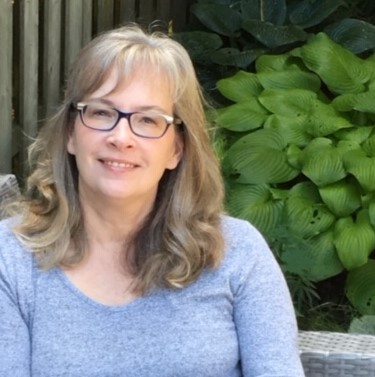For all its gorgeous, evocative language, much of “Orca” rests on what isn’t explicitly said. How did you navigate what to include and what to leave out? Did your choices change as you edited?
The story grew out of a SmokeLong Summer workshop led by Shreya Vikram on repetition in flash, so I’d like to thank her for leading such an inspiring two weeks! It was a great workshop, and I learned a lot. I’d read about the whale carrying its dead calf years ago and that image of loss and grief stuck with me. I wanted to leave space for reader interpretation yet still make connections between the whale and the teenage girl. The first draft seemed to flow effortlessly but my first inclination is always to tell too much, connect too many dots. In the revision process, I was able to pull back and let the pattern of the story unfold in a way that allowed the reader to make important inferences rather than having me lead the way. I also had fantastic workshop participants who gave me invaluable feedback on my first draft!
“Orca” evokes cycles: the life cycle, the menstrual cycle, oceanic cycles. The narrator’s counting of days threads a sense of the linear, a forward chronology, through these cycle motifs. Can you say a bit about the dynamic between the linear and the cyclical in this piece?
Brilliant question! I’d like to say I intentionally contrasted the cycles with the forward movement of time, but, in truth, the dynamic between the linear and cyclical just evolved as I wrote the story. The forward movement of days propels the story forward while the cycles push forward/draw back much like the waves in an ocean, enabling me to tap into universal themes of hope, fear, and grief. Time threads through the story in the form of the girl counting days, hoping she isn’t pregnant, while simultaneously, people watch the orca in an accelerating pattern of days until the whale finally releases its calf. The driving force of time butts up against those cycles that repeat over and over in life, hopefully giving the piece a cohesive, layered feel.
Without abortion access, this narrator would have an entirely different story. As a woman from the United States, I can’t help reading “Orca” through the lens of the recent repeal of Roe v. Wade. You live in Canada. How do you see this story in terms of the Canadian context for reproductive rights?
I didn’t consciously set out to write about abortion, but it must have been in the back of my mind with the shocking news of the repeal in the United States and how terrifying that must be for so many. In Canada, we’re very fortunate to have access to reproductive rights although there can still be barriers in remote regions. All women should have the right to make decisions about their own bodies, no matter who they are or where they live. Even though the teenage girl has the choice, she still must navigate the emotional toll it will take on her, something she’ll live with forever.
“Orca” ends with the narrator contemplating the orca’s future and, by implication, her own. What’s your wish for the narrator’s future?
I hope she can move forward. She compares herself to the “good mother” orca who holds on to her baby, and yet the girl is about to terminate her own pregnancy. She knows this will be a defining moment for her. Abortion is a deeply personal choice, but there is still stigma surrounding it. I read an article recently about the ripple effects of abortion, the silence and grief women feel years and even decades afterward. The narrator knows it’s the right decision—or maybe she feels it’s her only choice at that point in her life—but I’d like to think she’ll forgive herself and not carry the burden of her grief forever. I hope she’ll let those feelings go like the Orca finally releases its calf.
The narrator “holds herself together with bobby pins and drives to the ocean.” What do you hold yourself together with in tough times?
That’s an interesting question! Like many writers, I find the act of writing deeply cathartic. It helps me make sense of what I’m feeling. Flash in particular shines a lens on the heart in a way that’s so immediate, so distilled in its form, that I find I often turn to flash when dealing with difficult topics. Writing is such a solitary activity. It helps immensely to be involved in a community of writers such as the SmokeLong Summer workshops where I can connect with other writers, share the craft, and workshop ideas. I’m fortunate to have a support system of family and friends who are always there for me during tough times. They are invaluable!



 The core workshop of SmokeLong Fitness is all in writing, so you can take part from anywhere at anytime. We are excited about creating a supportive, consistent and structured environment for flash writers to work on their craft in a community. We are thrilled and proud to say that our workshop participants have won, placed, or been listed in every major flash competition. Community works.
The core workshop of SmokeLong Fitness is all in writing, so you can take part from anywhere at anytime. We are excited about creating a supportive, consistent and structured environment for flash writers to work on their craft in a community. We are thrilled and proud to say that our workshop participants have won, placed, or been listed in every major flash competition. Community works.